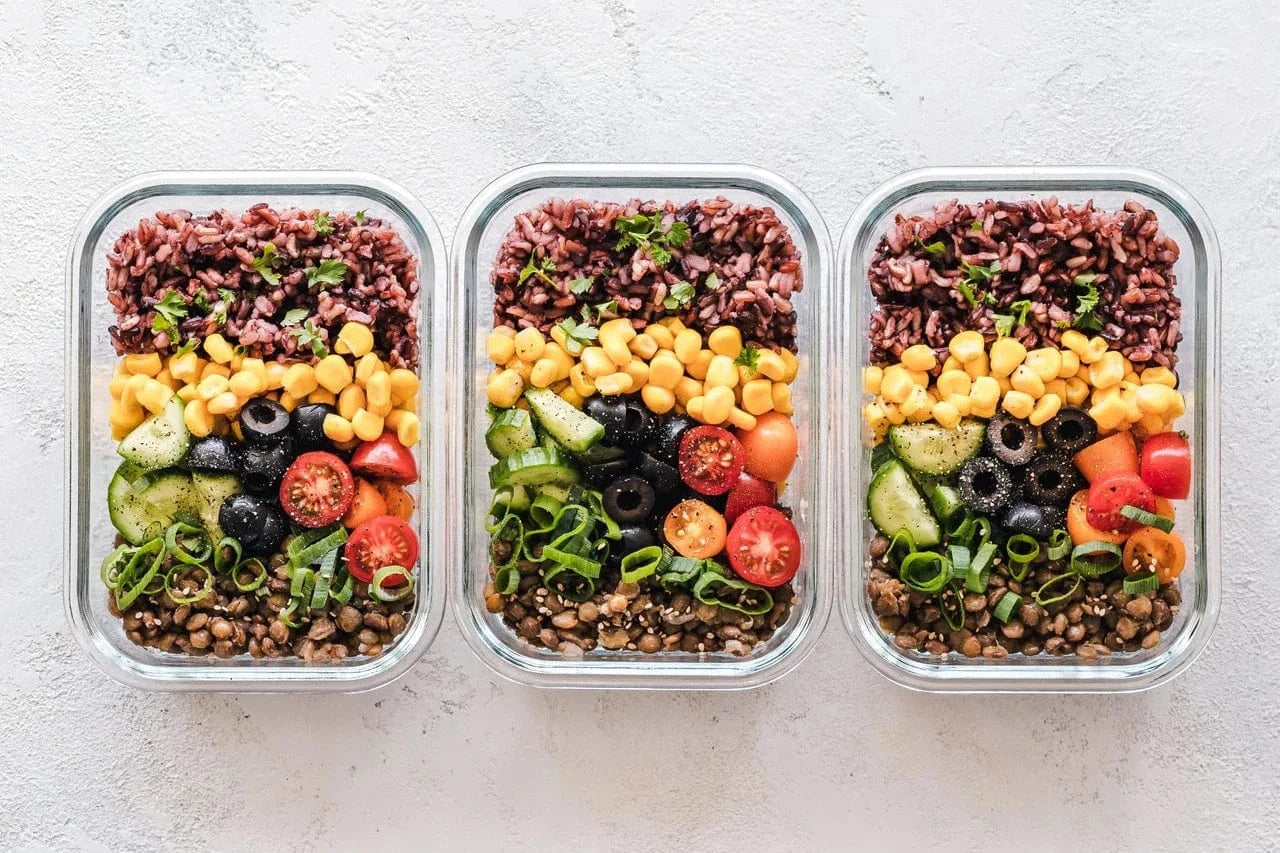
Get news, updates, & event Info delivered right to your inbox:
Inflation is Affecting Everything From the Global Economy to Your Personal Budget
With the current US inflation rate at over 8%, many of us are feeling a difference in our budgets. And unfortunately, the US is not alone in experiencing a historically high inflation rate: according to analysis by the Pew Research Center, of 44 advanced economies around the world, 37 are experiencing inflation that is at least double what it was pre-pandemic. Regardless of the how much inflation each country has experienced, most have followed a similar path: relatively low levels of inflation before the pandemic struck in early 2020, which then turned into flat or falling rates from 2020-early 2021 (as a result of reduced economic activity around the world) — and now, rates that began rising in mid to late 2021 and haven't stopped, as the world has struggled to get back on its feet.
It's good to understand how larger social, economic and environmental forces such as distant (or not so distant) wars, extreme weather events and other climate change impacts, global markets, and economic cycles influence the current inflation rate — and how this can have a direct impact on your personal finances. Hopefully this understanding can help to reduce any negative feelings (like stress, shame, anxiety) you may have around financial struggles — and free you to focus on the things that you do have control over.
But still, understanding inflation doesn't change the day to day reality of rising prices that, for many, make it much harder to make ends meet. So what is an environmentalist to do to cope with inflation while still making a difference for our planet? Fortunately, many actions that you can take to reduce the effect of inflation on your finances, also happen to be beneficial for the environment. And if you're struggling to get by, never mind help the environment, that's completely understandable. In times like these, it's about doing what you can with the resources that you have.
Here are 10 Tips To Help you Soften The Impact of Inflation On Your Finances

1. Determine How Much Inflation is Affecting You
To do this, one financial advisor recommends comparing how much you spent on the same things in the first 4 months of 2021, vs. what you spent in the first 4 months of 2022. Because we all have unique lives and circumstances, inflation affects everyone differently. And doing this will give you a really clear idea of whether you're spending significantly more of your hard-earned dollars.

2. Make a Monthly Budget
Once you're crystal clear on how inflation is affecting you, it's time to take a look at your entire monthly budget. What is your post-tax income each month, and how has that changed in comparison to your expenses? If you're spending significantly more on the same things but are still earning the same amount, you'll definitely benefit from sitting down and building out a personal finance budget.

3. Find Ways to Reduce Your Monthly Expenses
Whether it's trimming unnecessary services from your cell phone plan (i.e. if you have wifi at home and work, you may not need unlimited data on your phone), cutting back on streaming services, evaluating any recurring subscriptions, or negotiating a better home or car insurance rate, there are steps you can take today to reduce your monthly expenses. Need more inspiration? Check out our sustainable living tips.

4. Save Money at Grocery Check Out with Meal Planning
According to a report compiled by waste management consulting firm RTS, American households throw away an average of $1,600 a year in produce. One way to combat this is by planning out your meals. That might mean sitting down and mapping out each meal based on your schedule, prepping up ingredients, or cooking big batches every few days. For more ideas, check out our tips on how to reduce waste.

5. Buy Staples in Bulk Whenever You Can
Another great way to save money at the grocery store checkout (andhelp the environment) is to shop at stores that sell dry ingredients in bulk. Because you can control the amount of things that you purchase right down to the ounce, you'll be able to get exactly what you need. And typically, bulk items come with a cheaper price tag than prepackaged ones do. To save even more, consider joining a food buying club (or starting one)!

6. Join Resale Marketplaces
From Craigslist to Poshmark, and from Facebook Marketplace to eBay, there are a wealth of online marketplaces where you can buy and sell gently used goods. From like new furniture, to clothing, tools, and more, you can find just about anything you need at a discount. Just make sure to do your research to ensure that you're getting the best deal, and meet up in "safe trade" or "safe online exchange" locations (many police stations offer designated areas for this).

7. Put Your Stuff to Work For You
As mentioned above, there's no shortage of online marketplaces where you can sell your stuff. But have you thought of renting it? If not, we recommend taking stock of your home and belongings (and your insurance policy!), because there might be more equity there than you'd think. Your car, RV, spare bedroom (or whole home), outdoor gear, parking space, or even swimming pool can all be rented through secure online platforms.

8. Consider a Side Job
Everyone's circumstances are different, but if you have the time and space in your life to take on a side hustle, then now is the perfect time. Think about what unique skills you have, and put em' to use! This could mean pet sitting in your home or theirs, offering your professional skills via freelance work, tutoring students of all ages in anything from guitar to creative writing or financial literacy, signing on with a ride share service, and more!

8. Go Vegetarian
At risk of sounding like a broken record, a great way to help your budget and the planet (and your health!) is by adopting a more sustainable diet and eating more home-cooked vegetarian meals. Meat and fake meat products come with an inflated price tag, but versatile vegetarian staples like tofu, tempeh and canned or dried beans are a simple way to incorporate cheap, plant-based proteins into your diet. And with a cornucopia of recipes, guides, and more, it's easier than ever to prepare plant-based meals that are as delicious as they are nutritious.

10. Take Advantage of Coupon, Credit Card Benefits etc.
One resource that is highly underutilized? Credit card rewards programs! Take a look at your contract, because you might be missing out on cash back incentives, frequent flier miles, exclusive deals, and more. If you don't have a credit card, or are already taking full advantage of your benefits, there are other programs out there to take advantage of, including coupon codes and cashback portals that can help you stretch your hard-earned dollars a bit farther.
So there you have it! We hope that these tips inspire you to focus on the areas of your budget that you can control to improve your finances and reduce the effects of inflation. And hopefully, you also see that helping the environment doesn't have to mean breaking the bank. In fact, there are plenty of actions that you can take today to reduce your expenses and green up your daily life.
Want to do more? Support reforestation today!
Get news, updates, & event Info delivered right to your inbox:
Related Posts
Sustainable Diet Tips: How to Eat Healthy While Protecting the Planet
13/01/2026 by Meaghan Weeden
Agroforestry Explained: Principles, Benefits, and Case Studies
08/01/2026 by Meaghan Weeden
Plant Your Resolution: Making a Global Impact With The Grove
01/01/2026 by One Tree Planted
Popular On One Tree Planted
How to Reduce Waste: 21 Practical Zero Waste Tips for Everyday Living
23/12/2025 by Meaghan Weeden
Inspirational Quotes About Trees
16/12/2025 by Meaghan Weeden
The 9 Oldest, Tallest, and Biggest Trees in the World
11/12/2025 by One Tree Planted
Fundraising Disclosures

Be Part of the Restoration Movement
The Grove is more than just a monthly giving program: it's a vibrant community of individuals who are dedicated to reforestation and environmental restoration on a global scale.





